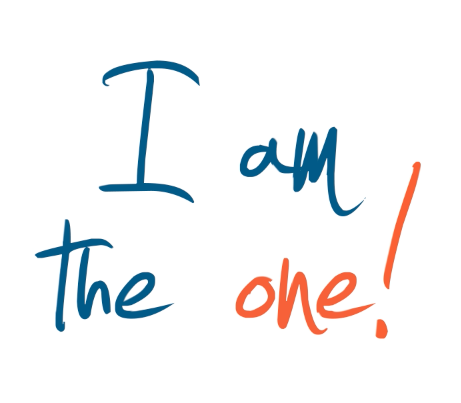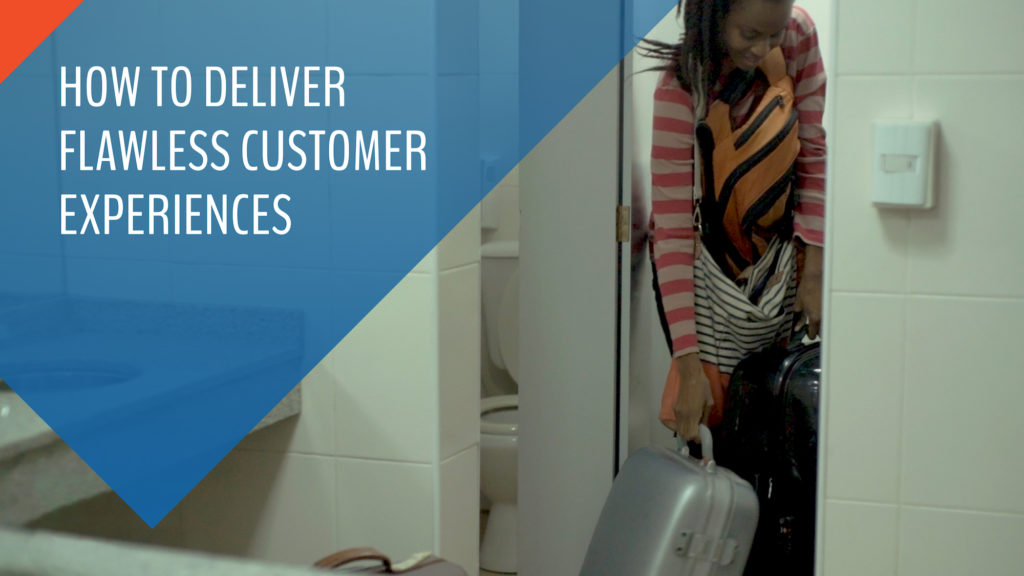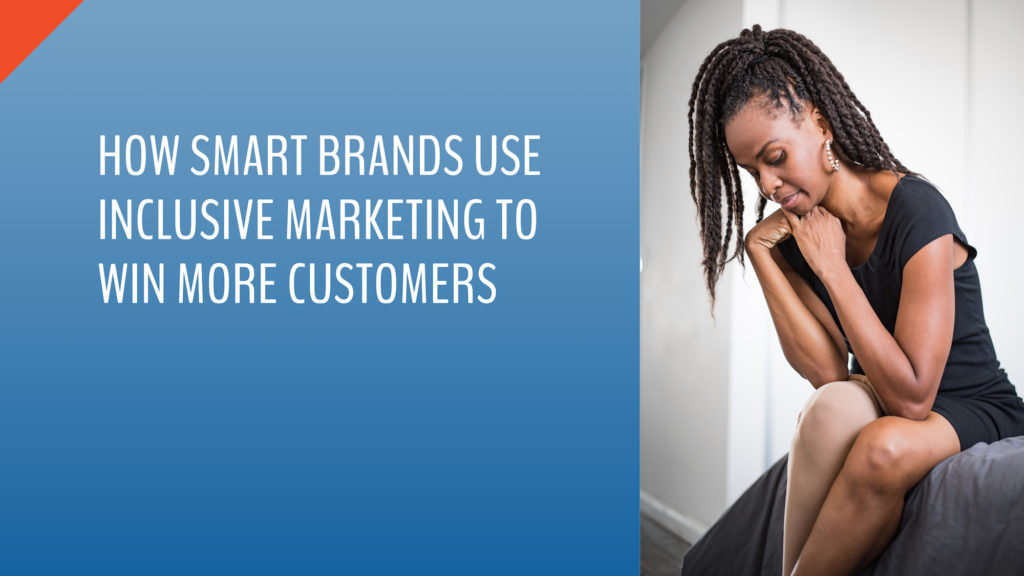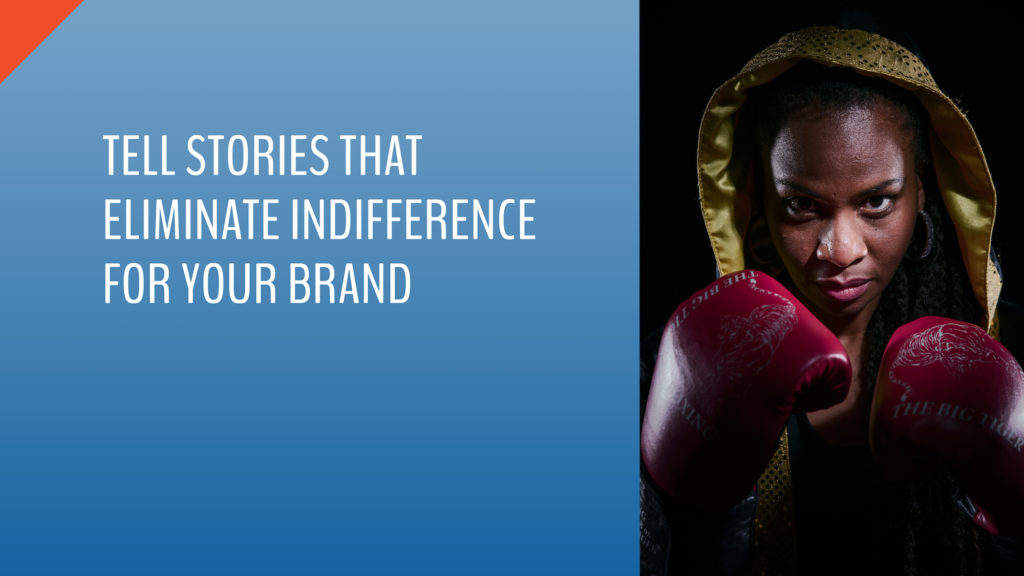Hiding out underneath the bleachers for half the night wasn’t quite the way I’d hoped to spend the evening.
It was the biggest track meet of the season, and I was on the 4×100 relay team. My school had a real chance of winning the race against our county rival, who was favored to win.
The stage was set, and the bleachers were full. Then the unthinkable happened. During the baton pass, my legs somehow got tangled with my teammate’s. The baton ended up on the ground. I ended up on the ground. And any chance we had of winning that race was lost.
Totally, and utterly embarrassed, I popped up and finished my 100 meters, before passing the baton to my next teammate. I was mortified. MORTIFIED.
Hence why I spent the rest of the night hiding out underneath the bleachers.
A similar nightmare happened to Danny Iny earlier in his career. Only the stakes were much higher than the bruised ego of a teenage girl. He’d been hard at work, building an education business, when the perfect storm hit. As a result, his promising business failed.
Not only did Danny’s business fall apart, but he was left with hundreds of thousands of dollars in debt. Ouch! He could have licked his wounds and threw in the towel with regards to entrepreneurship. He could have hid out, and gotten a “real job” to work on paying off those debts.
But he didn’t do that. He got up, took the lessons he learned along the way, and started another business. And today, he’s the head of Firepole Marketing, a company that in just a few short years has trained thousands of entrepreneurs on how to build an online business. It also grosses more than a million dollars each year.
Sometimes the path to building the business of your dreams can be a rocky one. You fall down. Your worst fears may happen. Your confidence gets shaken. It happens to all of us at some point.
But you can survive your failures. In fact, you can even thrive after them. But you have to learn from them. And you’ve gotta keep moving forward.
Instead of hiding out in the bleachers.
That’s just one of things you’ll pick up from my chat with Danny. There’s lots of other good stuff you won’t want to miss in the interview too. Here are just a few:
- What the default assumption should be for every entrepreneur
- Why a failed start-up is like a failed relationship
- The key to becoming an “overnight success”
- What small business owners should focus their energy on when just starting out
- Why the job description of an entrepreneur changes regularly
- Why you need to get clear about what success means to you
- What types of resources you should invest in for continuous learning and improvement
In the comments below, I’d love to hear about your plans for your business. As you use your failures as stepping stones to success, what does success look like for you? What is the goal you are striving for?
Thanks so much for watching, and I’ll look forward to chatting with you about your goals. 🙂
Show Notes
2. Skyhooks and Cranes from Darwin’s Dangerous Idea
3. Mulan training montage – The song that gets Danny moving
The Transcript
Sonia Thompson: Welcome to the first episode of “I am the one!” A show that features entrepreneurs who decided they were going to be the ones to make life better for the people they serve.
Welcome to the first episode of “I am the one!” A show that features entrepreneurs who decided they were going to be the ones to make life better for the people they serve.
I’m Sonia Thompson, and today I’ve got a treat for you. I chatted with Danny Iny, the founder of Firepole Marketing.
Since 2011, Danny and his team at Firepole Marketing have been working hard helping thousands of students build their online businesses. And after only three short years, the business now earns more than seven-figures in annual revenues.
We can learn a lot from Danny’s success. That’s why I was so excited to talk with him, so we could all learn from his experiences as an entrepreneur. So without further ado, here’s Danny.
How Danny got started as an entrepreneur
Sonia: Hey Danny, thank you so much for joining us. It’s great to have you.
Danny Iny: It’s totally my pleasure. Thank you for having me, Sonia.
Sonia: You are guest numero uno on the show, but I guess since you’re in Montreal, [laughs] maybe I should say number un. Is that right? [laughs]
Danny: Yeah, numero un.
Sonia: I wanted to just sit down and talk to you. You’ve been an entrepreneur since you were 15 years old. Can you tell us a little bit about your journey? What was that business that you started when you were 15? What gave you the confidence and the courage to say, at such an early age, “I can do this” for such a big challenge?
Danny: That’s a great question. The very first business I started when I was 15 wasn’t much of a business. I quit school and I figured I would build websites because I knew how to write HTML which is none of what you need to know to build websites.
I started going door‑to‑door, down the street, going from retail store to retail store, asking if they needed a website. This is how naive I was at the time, I didn’t understand that the clerk behind the counter in a clothing store is not the person who makes that decision, so that never got very far.
One thing led to another. You just keep looking for opportunities and going after them. It terms of what made me think I could do it, I don’t know, why not. The default assumption should be things are doable, things are figureoutable.
Sonia: We’re glad that you continue along that path of figuring things out. You’ve definitely figured things out with Firepole Marketing. You’ve been wildly successful, with that as your current business. What was the unmet need that you saw whenever you started to look at why you should be starting this business?
Danny: Back before I started Firepole Marketing, I was just recovering from a collapsed startup and rebuilding my consulting practice, providing business and advisory services, basically, consulting to small business owners’ and entrepreneurs. It was my sweet spot. I like to see 0 to 10 employees and closer to 0 than to 10.
I found a lot people in that range who were doing well, and they could afford my services, and they built a lucrative practice but there were also a lot of people who were not doing well at all and they need a lot of help. They couldn’t afford to pay for it and so I was giving away a lot of my time for free, which is fine because a lot of people helped me out for free when I was getting started and they didn’t have to.
So you pay it forward.
But my time didn’t scale. I felt that there was a need here. There was a need for small business owners to get good, solid, actionable not just marketing tips and tricks, but something that led to a bit of a deeper understanding, which is what drives real success for most people.
Sonia: So you were able to find out basically what they needed, and then because that was your sweet spot, is that why you said, “I’m going to be the one to go ahead and fill this unmet need that’s existing”?
Danny: Sort of. I was already out there looking for people to provide these services and a lot of people were asking me for help along these lines, so the need in the broad sense hit me right in the face. I emphasize in the broad sense, because in the specific sense, I didn’t get it and I got it wrong. I was like, “Hey, maybe there’s an opportunity to create something that’s a little more scalable, a little more one‑to‑many.” That was the start of Firepole Marketing.
How Danny bounced back from a failed start-up and boatloads of debt
Sonia: As you’ve been going along through your different businesses and now that Firepole Marketing especially is doing so well, what have you found has been the thing that has kept pushing you and keeping you forward?
Through all the high highs that come along with entrepreneurship, all the low lows, what is it that keeps you hungry and pushing forward to just keep working to make it work, and to keep going higher and help even more people?
Danny: That’s a great question. You sent me that question in the prep for the interview, and I had to really think about it, because the default, to me, is to strive and do something. Something is interesting. I’m a project person. When I was a little kid, I would take on projects of building costumes or whatever I was doing, but you’d take on a project and you just gravitate towards projects.
When I have a day off, I can’t sit at home doing nothing. I’m like, “What am I doing?” I’ve got to do something. I’ve got to fill the time. I don’t know how to answer that. The default is to be doing something, for me.
Sonia: Doing nothing is not an option for you, got it. [laughs]
Danny: Yeah. It’s not like I refuse to do nothing. It’s not like that. It’s just like, “What would I be doing? I’d be bored.”
Sonia: [laughs] You’re just always on the run, always working to make something happen. We get it, and that’s a good thing. That’s a good thing, because you’re naturally motivated, I suppose.
Danny: There is a scale of challenge thing there. That’s definitely true. When you’re feeling energized and things are going well, you’re ready to take on bigger challenges. This is something I haven’t shared in too many places, but Firepole Marketing was actually…I mentioned that I created it on the back of a startup disintegrating.
When a startup falls apart, it’s a lot like going through a rough breakup. You’ve put so much into it, and it all fell apart. After a rough breakup, you’re not ready to get out there and meet someone new right away. You need to recover, you need to lick your wounds a bit.
Sonia: You have to heal. [laughs]
Danny: It took a year. Firepole Marketing, I took it on in part because I didn’t have to raise a lot of capital. I didn’t have to hire a lot of people. It wasn’t a big commitment business. It was something that I could do on the side. The commitment was low, the risk was low. It was like, I could try it and I wouldn’t be too tied down, I wouldn’t be too invested. In a funny way, it was the rebound business.
Sonia: [laughs]
Danny: But yeah, then it took on a life of its own.
Sonia: The rebound turned into the one, right? [laughs]
Danny: It really did.
Sonia: Going back to what you just mentioned, you were coming off of a business that failed for a number of reasons, a lot of things happened. You ended up with a lot of debt as a result. A lot of people, like you said, would’ve gone and licked their wounds and gotten a real job to go and work on paying off some of that debt, or to heal a little bit from the experience of something not working.
What caused you to move into your rebound, Firepole Marketing, onto the next thing without going and working for somebody else at that point?
Danny: Honestly, I think I had limited options. After the startup fell apart, I had a lot of debt. It’s not like, a couple thousand or tens of thousands of dollars, it was hundreds of thousands of dollars in debt. It’s a lot of debt.
I wouldn’t say very successful in the grand scheme of very successful businesses, we’re still like this big but with the successful business, a public persona, a track record, an MBA from a fancy school that I think was not worth anywhere near the time or money that I spent to get it, I think if I went out there and looked for a good job, I could get one.
But at the time, I was younger. I was an entrepreneur who had tried to build a company that had fallen apart. I had quit high school to start my first business. I didn’t even have a high school diploma. I don’t think I was in a position to get a hugely great job. Maybe I could’ve, maybe not.
But even if I had gotten a reasonably good job, just doing the math, looking at how much I could stand to make, even in the best‑case scenario, minus living expenses, how much is left over? Even if I live on peanut butter and jelly for the next 10 years, it’s like, the amount of debt was so high that, OK, that was not a workable solution.
I’m a person…I plan, I think about contingencies. I can’t help it. My wife tells me I should be more in the moment, and often she’s right. But this is an area where it worked to my advantage. Just doing that projecting and planning ahead, I was like, “OK, that is not a viable option.” [laughs] I’d have to find something else.
Danny’s biggest lessons learned throughout his entrepreneurial journey
Sonia: Aside from maybe getting your MBA, since you said it maybe didn’t provide the most value for you, looking back…
Danny: Worst investment of my life, actually, yes.
Sonia: [laughs] Oh, that’s so bad to hear. Aside from your MBA possibly, is there anything else looking back to where if you had the opportunity to change it, that you would change? Or would the MBA be the thing?
Danny: I don’t believe in regrets. I don’t believe in the road not taken, because it’s like those movies, you go back in time and you eat a different sandwich, and you come back and Germany won World War II or something.
But you don’t know what the repercussions are. I like my life, things are good. I like the impact and the contribution I can make. I like the people I work with. What I bring to the table to be able to do that is the sum total of my experiences.
I like to think that even when I made the “wrong” decision, I did the best I could with what I had with the knowledge, awareness, expertise I had. And so, if I went back to that position from where I was standing, sitting at the time, it would’ve been the right decision again.
I don’t believe in regret. Even my MBA, which was a big waste of time and money in my opinion…Not because it was a bad school, just because I think higher business education is in crisis and becoming increasingly irrelevant, first of all, I met my wife while I was doing my MBA.
She had an MBA. She was working a good job for a big consulting firm. She had a real job. This is before she came to work with me.
The fact that I was doing the MBA and that I was doing consulting work, although in a very different context, it was a bit of common ground. I don’t know if I’d be married without it. Even looking at specific business applications, if I look at my medium‑ to long‑term goal for where I want to go in my business life and career…Firepole Marketing is this much of it.
There’s a lot more…the massive global dysfunction of the higher business education industry is the billion‑dollar opportunity that I’m really excited about. I don’t know if I’d be completely aware of it if my time and money hadn’t been so wasted by my MBA. Things work out.
Sonia: It all works out. It’s all part of the bigger story. What overall has been your biggest lesson learned through all these experiences with these businesses, your MBA, to working with your clients?
Danny: There’s a ton of them. One of the biggest lessons learned is that there isn’t a single biggest lesson learned. I remember I was constantly seeking, “What is the one secret, the one trick?” The reality is that success is a little more complex than that. Competency and ability, they’re a little more complex than that.
The trouble is that they don’t look that way. Because there is simplicity on the near and on the far side of complexity. Once you are an expert, once you have really understood something, it is relatively simple. There are simple answers. The thing is, until you’ve gone through all that, the simple answers just seem like platitudes and they don’t make sense.
What it comes down to is that you’ve got to put in the time. You’ve got to do the work. I guess that is a good way to boil it down, actually. Because I’ve seen a lot of people be very, very successful, celebrated for their rapid success ‑‑ myself included to a limited extent. Although I don’t understand the track record people are looking at.
I’ve been at this since I was 15. It wasn’t that fast by that record.
Sonia: You’re the overnight success in 10 years. [laughs]
Danny: That’s exactly it. It’s funny. In the very early days of Firepole Marketing, I used to say something like, “I’ve been at this for about 10 years, so I think I’m about due for my overnight success.” Sorry, I’m using a screen‑dimming app with sunset and my screen’s starting to turn orange. I’m just going to fix that. Sorry.
Sonia: No problem.
Danny: But yeah, we love the story of the magical, instant transformation. We celebrate it everywhere. The years of training or hard work when you’re watching a movie, that’s the stuff that gets lost on the editing room floor when you’re watching a 30‑second montage.
That’s how we like to look at it, but everyone I know who’s been very successful, especially in a short amount of time, they put in the work.
Sonia: You can’t avoid that. You can’t avoid that part.
Danny’s view on what makes businesses work well
Sonia: Putting in the work is something that’s universal, whether you’re at the beginning of your career, you’re in the middle of growing a business that seems to be going well. Are there different components of what makes a business work well, depending on different stages that you’re in?
Is there more of a certain ingredient that you need in the beginning, versus what you need when you’re two or three years in?
Danny: Absolutely. That’s another reason it’s hard to boil down to just the one thing sort of thing. There’s a metaphor that I really like. This comes from a philosophy book I read 10 years ago or something. The metaphor is this idea of skyhooks and cranes.
If you want to build a giant tower, you want to raise something up really high, you can have a skyhook, meaning a hook that just hangs in the air and use that to hoist things up, and of course, that doesn’t exist, because you can’t just hook things in the air. That’s the fairy, the imaginary, the not‑real or ‑possible option, or you can have a giant crane, which is something that sits on the ground and reaches way up high.
The interesting thing about that is if you want to build a giant crane, you do it with smaller cranes. If you go to a job site, you’ll see there’s a little crane that goes and builds the bigger crane. Business is like that. Depending on where you are in your business, you need different things. People love to talk about ‑‑ who are just getting started ‑‑ virtual assistants and systems and processes.
That’s all getting way ahead of yourself. When you’re one guy just starting out, you need to bring in sales. You need to get people to give you money, find out what it is that is attractive enough to them for them to open their wallet, give you money, and you’ve got to fulfill on that and they’ve got to be happy with the outcome.
Once you’ve done it once, you’ve got to repeat. Do it again, and do it again and do it again. Once you see the patterns, once you see where you can start optimizing scaling, that’s when you start doing more of it. But you start out with just “How do I do that?” Then you look at multiplying that.
As you multiply that, you’re going to start looking at systems a little bit. You’re going to start looking at hiring people to help out, whether it’s virtual assistants, whether it’s full‑time. I’ve always leaned towards full‑time. I think part of someone’s time buys you a tiny fraction of their focus. You want people fully invested in what you’re doing. As you grow, as you start having more people, you’ve got to start paying more attention to the people side of managing a business. You’re actually managing a team. As you manage a team and especially as the team grows, you start needing a little more in place on a strategic side. You need to get better at cash management.
When you’re just one guy and you’re paying two people who are working part‑time trying to make things work, you have a bad month, you put it on your credit card. It’s not good business practice. Every business coach is going to shoot me for saying it, but that’s what we all do.
Sonia: It’s reality. [laughs]
Danny: But then you fast‑forward a year‑and‑a‑half. I had this moment, because my wife works with us now. She’s our CFO. We were looking at the numbers. It’s like, “Look, we spent $110,000 last month. In a bad month, I can’t put that on my credit card.” So you start looking at a tighter financial management, and where can you improve your margins and create cash reserves.
As you do that, you start bringing on more people, more specialists. As you begin to hire the first one, two, three people, they tend to be generalists, kind of like the skill set of an entrepreneur. When you’re looking at the sixth, seventh, eighth employee, they tend to be much more specialized, because now you have an area in your business that is specific and focused and requires a full‑time person.
As you reach that scale, you realize, “Managing 8 or 10 people, or 15 is different from managing 3 or 4 or 5. You can manage a team of 4 or 5. You can’t manage 8 or 10 or 15, because there’s only so many hours in the day. You’re going to go crazy, drive everybody nuts, and accomplish nothing. You’ve got to start stepping into more of a leadership role than a management role.”
That just starts beginning around 8 to 15 employees. I know that it continues to change, it continues to evolve, the needs continue to be different. But right now as we speak, I have 14 people on the team. We’re hiring three more. We’re in the middle of a giant launch that will hopefully, knock on…give me some wood.
Sonia: [laughs]
Danny: It’ll be very successful.
Sonia: I’m sure.
Danny: But we did last year about $1.25 million. It sounds like a big number, but it’s really not. In the grand scheme of business success, it’s still, we’re this big. I’m hoping to triple the size of the business in the next year. I don’t know what’s going to be involved in making that happen. You asked about the one thing, and I keep coming back to a different one thing, which is part of the challenge.
Sonia: It’s OK. [laughs]
Danny: If you want to be growing a business, and especially if you want to be doing it quickly ‑‑ this has been challenging for me ‑‑ you’ve got to recognize that your job description as the entrepreneur is going to keep changing.
It’s hard sometimes, because you get to a point where things are working well, you’re enjoying it, you’re having fun. You’re like, “I wish I could just enjoy this for a while and not have it change on me in the next three weeks.”
It’s totally a matter of choice. You can grow a business to half a million dollars, a million dollars, $100,000, whatever it is, and say, “This is what I want, I’m satisfied.” I’ve found it’s a lot easier to hold a business stable than it is to grow it. But as long as you want to grow it and grow it fast, you’d better recognize that part of your job is always getting comfortable with a new job description.
It’s like, if you’re working for another company, when you get hired, there’s a period of time where you’re learning the ropes. To a certain extent that’s what it’s always like in the job
Sonia: It’s always your first 90 days. [laughs]
Danny: Yeah, which is challenging. Because there are things that you learn to do well, but too much of the time you’re playing in an area that you’re not an expert in yet. Which is exhilarating, and you learn fast and you learn a ton, but it’s also a little stressful.
Sonia: Absolutely. Maybe some of the advice in there is not to get too married to a specific plan of, this is exactly how it’s going to work, and we’re going to stick to this course of action just because things change so rapidly.
Danny: Absolutely. Recognize that the systems and processes you’re building, the plans that you’re making, they can be amazing and work perfectly when there are three of you, not so much when there are nine of you, or whatever.
It’s not just about not being attached to these things. It’s almost embracing this feeling of, “Oh, OK, this is new, I haven’t done this before, but I think I can figure this out.” That’s important.
We touched on this in the very beginning that, there’s an attitude of figureoutability. I don’t know this, but I’m sure I can figure it out. Somewhere in the world there is someone less capable than me who has figured this out, so I must be able to do this.
Sonia: [laughs] Absolutely, you’ve just got to put it in the works to do, everything is figureoutable.
Danny’s advice to business owners
Sonia: Any parting words of wisdom that you might have for entrepreneurs, or people who are working to build a business, trying to get to their first million, or first 100,000, or whatever their goal might be?
Danny: I’ve got a couple. The first is we threw around the million mark, the 100,000 mark, and these are both targets people often set for themselves, mostly because they’re very clear, round numbers, more so than because they’re actually important milestones in a business.
It’s important to think about what are your goals? What is the business you want to build? How much time do you want to put in?
Building any successful business is hard work. It would be a real shame to do all that hard work and build a business you don’t even want. That would be a real unfortunate experience. Success means very different things to different people. To some people it’s a laptop on the beach. To someone else, it’s a glass castle. You don’t want to find yourself in one when you want the other. There is that.
Another one, if someone has internalized everything that we’ve talked about, being willing to figure things out and not being strongly attached to things…I’m actually going to steal this from my professor of my MBA. There were two or three super‑valuable moments in the whole year.
Sonia: [laughs]
Danny: This is one of them. This professor who was amazing ‑‑ one of the best professors I had ‑‑ he was talking about…I don’t remember what it was. It was a stats class or something. He asked a question that wasn’t about the specific curriculum. We were doing a case exercise, and so, it was related to the subject matter of the case.
“Hey, does anyone know why…” This or that. It was like, we were doing a case about operations and chicken farms or whatever, and production of white meat and dark meat. It was like, “Does anyone know what the difference is between white meat and dark meat?” I happened to know, just because in a previous life I studied martial arts and looked into exercise science. It’s slow twitch versus fast twitch muscle fibers.
My hand was the only one up. I don’t think I’m the only one who knew. Other people were just like, “This is not relevant, I don’t care, let’s move on.”
The comment he made was, “You know something? I’ve known a lot of very successful people, and they’re all very, very different from each other. What they all had in common is that they were all curious, they were all interested. They wanted to know why things are the way they are, and they wanted to learn more about things.
You don’t get to simplicity on the far side of complexity without having that curiosity, without immersing yourself in things.”
If your information gathering is limited to tweets as a short form and blog posts as a long form, you’re not going to get very far. The blog post or the sampler is where you figure out what’s interesting, and whose books you want to buy, and read the books and study the courses and immerse yourself in something.
It takes time and it takes work, but that’s the work that’s really worth doing. That’s what gets you to simplicity on the far side of complexity.
The song that gets Danny moving (sort of)
Sonia: Very cool, Danny. This has been wonderful. Thank you so much for your time today. We’ve done lots of great pearls of wisdom that the audience can use to work on continuing to build to their business and get to their goals. Before we go, I did have one other question for you.
Maybe this might be, once you triple your business in size, I know there’s always a lot of things that our music choices can tell about us. Is there any song or music or artist in particular that whenever you hear it, it just always makes you want to get your dance on and puts you on the dance floor? Maybe this’ll be the one that you’ll be dancing to whenever you hit that tripling your business goal in a year’s time?
Danny: Actually, I’m the wrong person for that question. Sonia: [laughs] Danny: I do not dance. I make an exception to dance once with my wife if we go to a wedding.
Sonia: [laughs] OK.
Danny: I am not the guy who dances.
Sonia: Oh, you’re not at all? Danny: But I will say that as a kid, I always loved all the classic Disney cartoons, and there’s the training montage song from “Mulan.” I’ll still put it on and watch it on YouTube or something while I’m training at least once a month.
Sonia: [laughs] Bob your head to it a little bit as you’re training. Thank you so much, Danny. This has been great.
Danny: Thank you for having me. This was totally a pleasure, and I’m honored to be your inaugural guest on the show. It’s going to be fantastic.
Sonia: Thank you again. Danny shared lot’s of great information with us. And one of the things that stood out for me in particular, was the importance of defining what success looks like for your business.So that brings me to today’s question for you.
As you put in all the hard work to build your dream business, what does success look like for you? What is the goal you are striving for?
Think about it, and then put your answer in the comments. I’ll be waiting there for you.
And if by chance you are not signed-up to get regular updates via email on how to grow your business, scoot on over to mytrybusiness.com and get signed-up. Then you’ll get the good stuff delivered straight to your inbox.
Until next time, keep working on building your dream business so you can make life better. Somebody’s waiting on you. Thanks for watching.







